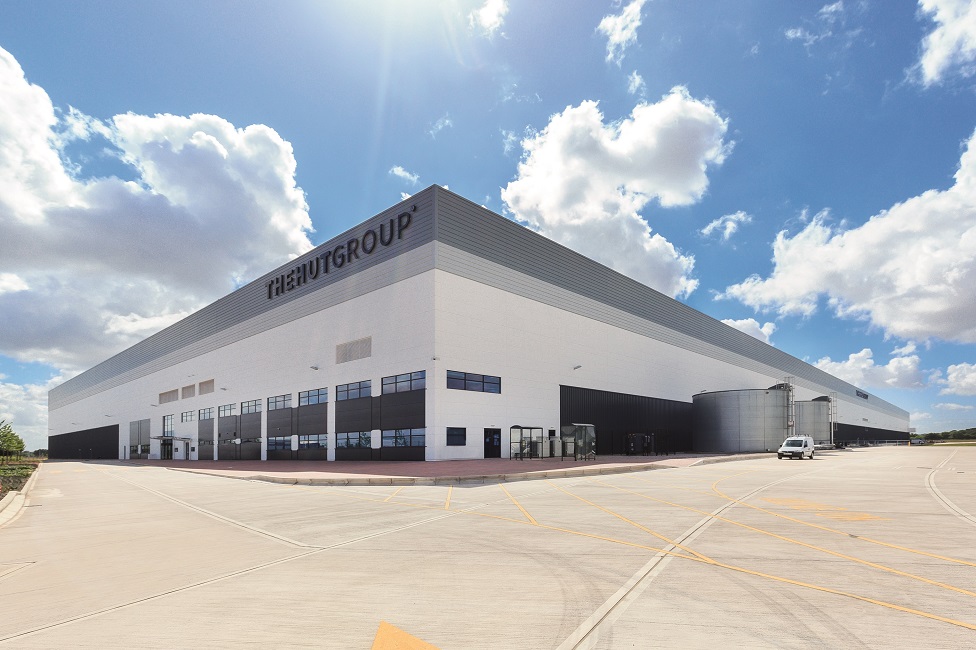How tech is transforming the industrial market
A complex interaction of technology, changing consumer and supplier behaviours together with an ever more challenging operating environment is recasting occupational demand in the industrial sector.
5 minutes to read
In response, the supply side of industrial property must reset in terms of specification, location and the capacity to better accommodate a mix of human and technological resources on a flexible basis.
Technology & Industrial Property
The emergence of new wave technologies will both disrupt and enhance the operations of industrial occupiers and the efficiency of supply chains. It is, however, easy to be swept away with the visions of a tech-led industrial utopia that is in such market contrast to the current reality.
"We anticipate that autonomous or driverless vehicles and drone delivery will be key developments that industrial occupiers and Landlords alike will need to respond to over the medium term."
Whilst the potential of automation, robotics, augmented reality and the internet of things are alluring, the reality is that the adoption of such technologies will not be as universal, seamless or rapid as many visions of the future often maintain.
This is not to suggest that technology will have no direct impact on industrial property. Rather, our view is that new technologies will emerge unevenly across the market – serving to bring competitive advantage to those who are able to make the necessary investments and have the required levels of digital fitness.
We anticipate that autonomous or driverless vehicles and drone delivery will be key developments that industrial occupiers and Landlords alike will need to respond to over the medium term.
We believe in a future where automation and robotics are an integral part of the industrial landscape and the operations of industrial occupiers. We witness at first hand the power of such technology in driving the operations of some of the tech titans occupying and utilising industrial space.
Notable in this respect is Amazon – who have been the dominant industrial occupier in the UK over recent years. Amazon have revolutionised industrial property with heavy utilisation of robotics. Their unit at The Airport is replete with picking robots that operate 24/7 to service the rapid delivery promise that is central to the Amazon offer.
There has been a rapid adoption of automated racking systems in a number of facilities throughout the North West, particularly amongst retailers.

Above: The Hut Group, Omega, Warrington
New Look who have their main Distribution hub in Newcastle-under-Lyme, have adopted a fully automated picking system for online orders including garment-hanging facilities.
Manufacturers such as Jaguar Land Rover and their supply chain including Adient and Plastic Omnium are also reliant on automated technology throughout their facilities. As demand continues from manufacturers across the North West, this trend is set to continue.
We understand that technology is bringing dramatic change to the effectiveness of supply chains. We do not however foresee a future where such rapid utilisation is universal. Just like in the office sector, competitive advantage will come to those able to apply leading-edge technology.
"As industrial real estate becomes a source of strategic and competitive advantage, occupiers will be prepared to work in partnership with the Landlords and developers and make longer-term commitments to product that both suits their operational requirement."
For the remainder, the application of technology will be a little more prosaic but no less significant. For example, the greater use of data and analytics to drive efficiency or enhance customer experience will be less capital intensive but arguably as powerful as the adoption of robotics and automation for many industrial occupiers.
Implications for future industrial product
Real estate product ultimately needs to reflect the requirements of the end-user. Although difficult to draw generalisations in the nature of future industrial real estate product given the extent of change, some characteristics will surely become more dominant.
The next phase of the industrial property cycle will be one where bespoke product will come further to the fore. As a variety of technology determines operational effectiveness there will be a greater divergence of occupier requirements that will be difficult to satisfy speculatively.
As industrial real estate becomes a source of strategic and competitive advantage, occupiers will be prepared to work in partnership with the Landlords and developers and make longer-term commitments to product that both suits their operational requirements and has the required levels of future proofing.
In this respect, the next phase of the cycle will be one where industrial product shows a greater variation in physical design. It will be an age in which multi-user, multi-level and mixed-use product will become more commonplace as technology, land constraints and collaborative operational models influence specification and design. Industrial product will also be characterised by greater levels of security.
The physical security of plant and inventory has always been a key consideration, but with operations underpinned by large volumes of data and analytics, cyber security will be a concern with occupiers keen to mitigate reputational risk through disruption.
Finally, specification will continue to bring greater consideration to both environmental management and impact. For example, Knight Frank have recently acquired a facility for Movianto, a pharmaceutical distributor.
The facility will be reliant on HVAC and temperature control given the sensitivity of the product being stored. It is critical the facility does not fluctuate in ambient conditions and can keep goods at the right temperature and in the right condition. Any fluctuation has the potential to write-off millions of pounds worth of stock.
In mitigating environmental impact, industrial real estate will become more self-sufficient via the greater use of solar panels and waste processing facilities – particularly as environmental technologies become less cost prohibitive.
In this respect, there will be an obvious interface between the energy and environmental sciences component of the tech sector and industrial real estate.
Rob Taylor is head of the North West Logistics & Industrial team, based in Knight Frank’s Manchester office. He has been exclusively involved in industrial agency and development since 2004